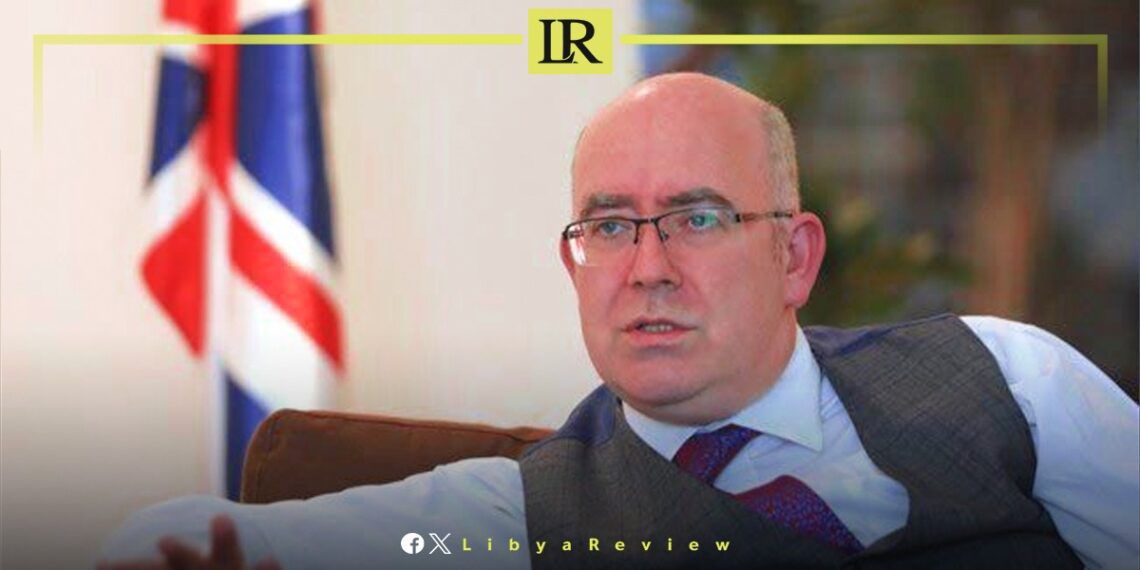The UK Ambassador to Libya, Martin Longden, has expressed deep concern over the ongoing armed movements in Libya. He noted that these actions pose a significant threat to stability and add an unsustainable burden to Libya’s situation.
In televised remarks, Longden warned that the cost of these movements on Libya is extremely high. He cautioned that failing to make tangible progress could further escalate these costs.
According to the British diplomat, the impacts of these armed activities are not limited to security; they also affect the broader Libyan economy, jeopardising the stability of subsidised goods and exacerbating economic crises.
Regarding the electoral process, Longden highlighted the complexities and numerous challenges facing Libya’s path to elections. He pointed out the many contentious issues among the concerned parties, complicating the consensus needed to hold elections. Longden also mentioned the growing calls to replace the outgoing government of Abdelhamid Dbaiba, reflecting the country’s political division and tension.
The British ambassador discussed the future powers of the next president, noting this as an additional challenge to the electoral process. He emphasized that the UK, in cooperation with the international community, is committed to supporting Libya’s stability and overcoming these obstacles.
On the legitimacy of existing institutions, Longden stated that many Libyans believe the mandates of the House of Representatives and the High Council of Sate have expired, further complicating the political landscape. He stressed that in modern democracy, governance should be achieved with majority consent while ensuring minority inclusion to achieve the necessary balance and stability.
Longden concluded by urging all Libyan parties to work earnestly towards political consensus and move forward with free and fair elections. He reaffirmed the UK’s and the international community’s commitment to supporting Libya through this critical phase.


